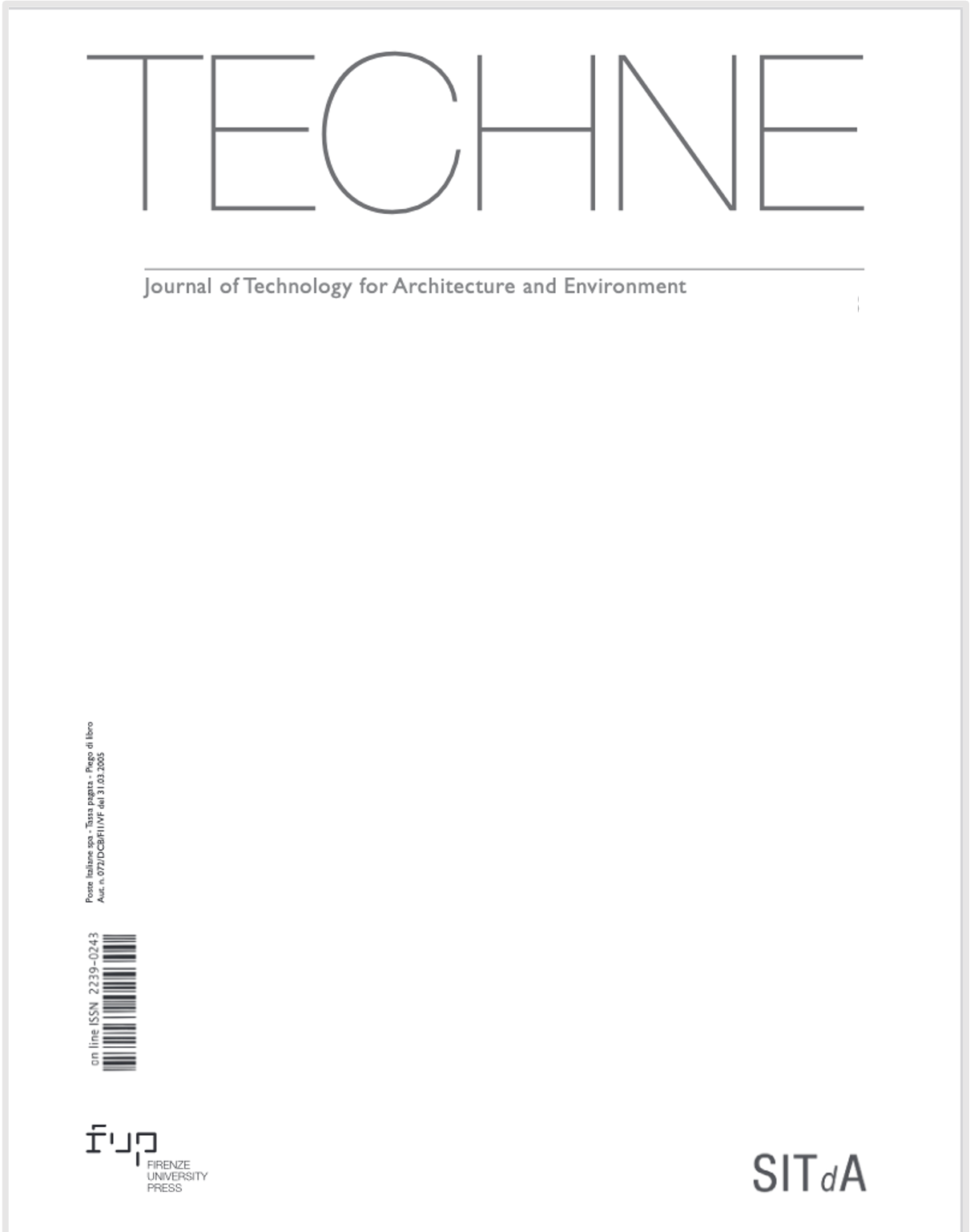In the technological culture of the design, the regulation is also understood as a form of “common language” to which it is possible (or mandatory) to refer in order to organize the activities in a logical way, verify the compliance with specific indicators, understand if and to what extent the required performance levels can be guaranteed, and share the principles and rules applicable in the different phases of project and works production.
Over the last few decades, especially in Italy, the complexity generated by the transformations of the social, economic, technological and environmental context has undoubtedly produced inevitable effects on the relationship between Regulation and Project, with a consequent increase in mandatory and voluntary regulatory systems (to be harmonized also with the EU requirements) which regulate the design action within the building process and refer to a multiplicity of actors and specialized know-hows. This considerable increase, which has often generated complexity and interpretation difficulties, today requires an incisive intervention both to rationalise, simplify and summarise rules and procedures, and to better coordinate them according to a recurrent and circular vision of project and works from the feasibility study to the concept development, up to their implementation and management. A vision that overturns the binomial Regulation and Project, placing the responsibility of the project activity at the centre, meant as ethical response aimed at satisfying the social demand for environmental, urban and territorial quality, also with the (often underestimated) urgency to train and update the operators. Therefore, a new perspective opens up, also with respect to the regulatory skills within the Architectural Technology, with the need to understand how these experiences can contribute, through the project, to the transfer of the constantly-evolving knowledge into regulations, also with the contribution of new sciences (neuroscience, biophysics, etc.) and new technologies (Big Data, Artificial Intelligence, etc.).
The Call tra norma in atto e progetto in potenza (Ciribini, G. Tecnologia e Progetto, 1984), aims to highlight the scientific and technical know-hows expressed in the project by way of regulations and through the concepts of: feasibility (cf. use of meta-design tools of design guidance, according to the needs-performance approach, to formulate flexible solutions with respect to the demand dynamics), verification (cf. calculation tests, simulations, testing, etc.); assess-ability (cf. measurability of the actual performance compared to the expected ones); validation (cf. sharing and consensus regarding the conformity of project and works). Referring to the outlined factors of complexity and uncertainty, TECHNE 27 intends to explore the possible paths that detect the relationship between Project and Regulation, in a balance between prescription and consensus, direction and control, to drive the project towards the quality of interventions at different scales. The investigation fields – in terms of theory, research and design experimentation – are identified in the following Topics:
1. Project and Regulation to guarantee the interests of the community
The topic intends to solicit contributions on how to enhance the ethical dimension in the project. Through which mechanisms and which forms of collaboration/participation? With what responsibilities? (cf. new management models of the design process, third mission/ethical and social responsibility of operators, correct use of resources, etc.).
2. Project and Regulation within the orientation tools for the quality of interventions
The topic intends to solicit contributions on how the design activity can be guided by the rule and how the standard can in turn be shaped by the project, contributing to the transfer of knowledge also through new sciences and technological, functional/spatial and environmental innovation. With what tools? Through which methodologies and experimentations? (cf. metaprojects, guidelines, pilot projects, etc.).
3. Project and Regulation for the control, verification and validation of the technical and performance contents of the project and of the feasibility of the works
This topic intends to explore possible actions and the related tools to be adopted for the quality of the results (cf. design activity regulation, project control actions and relationship with the process phases, new skills for the project, etc.).
CALL FOR PAPERS | TECHNE | 27
TIMING:
Abstract submission: May 16, 2023
Abstract acceptance: June 19, 2023
Article submission: September 11, 2023
Reviewed article result: November 06, 2023
Reviewed article submission: December 06, 2023
PUBLICATION DATE TECHNE | 27: APRIL 29th, 2024
DOWNLOAD THE CALL FOR PAPERS (PDF)

